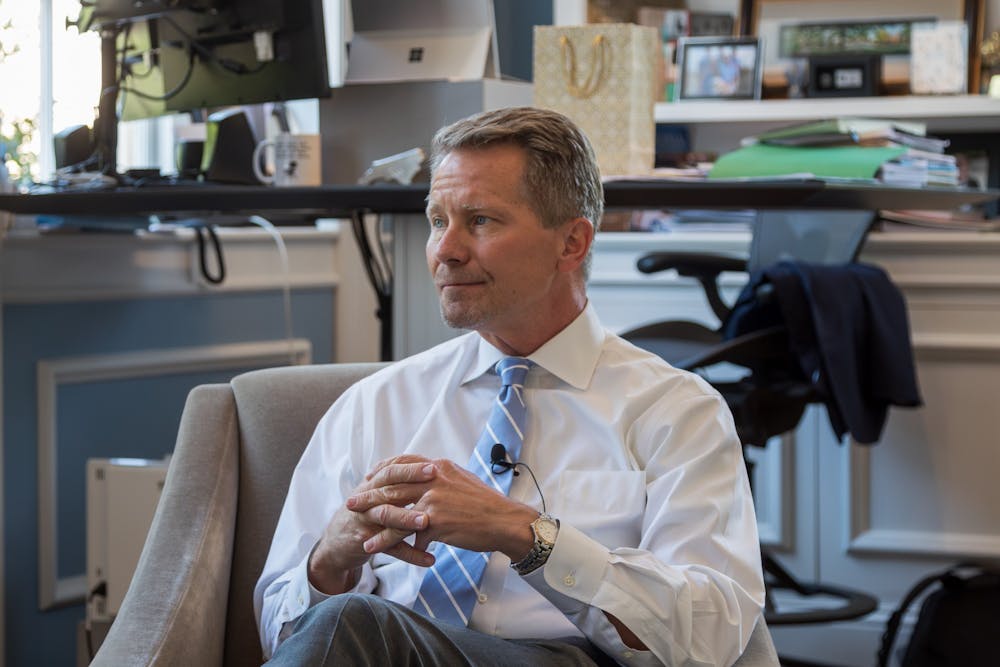Editor-in-Chief Guillermo Molero spoke with Chancellor Kevin Guskiewicz on April 24 to discuss the highs and lows of this academic year, tenure and accessibility at UNC.
This interview has been edited for brevity and clarity.
The Daily Tar Heel: It's been definitely an eventful semester and eventful school year. What are some of the highs and lows in your mind of 2022-23?
Kevin Guskiewicz: I think we were able to successfully launch our new general education curriculum for our first-year students, something we've been working on for several years. We welcomed in one of the largest classes in the history of the University, the most diverse class that we've ever admitted to the University, this past fall. And I think we've overcome, you know, many of the challenges that the pandemic had brought for the past few years.
We again set another record in research funding, of topping the $1.2 billion mark for research. Something that has been a goal of mine for several years is to give every student that wants a research experience that opportunity, every student that wants to study abroad an opportunity, and every student that wants to land an internship an opportunity. So, it's about really providing opportunities for students. I think it's been a great year in that regard.
DTH: I'll segue on into stuff that's been in the news more recently. Last week, a bill was introduced into the N.C. General Assembly lining up the steps to get rid of faculty tenure. How do you feel about the role of tenure on campus? And what do you think the impact of getting rid of tenure would be for the University?
KG: So, a little over 50 percent of our faculty at Carolina are tenured.
Tenure protects one of the fundamental principles of academia, which is academic freedom. And I feel it's very important. As I said in front of the Faculty Council on Friday afternoon, we have to just continue to educate General Assembly members about what tenure really means and in a way that allows us to recruit and retain the world-class faculty that we have that allows us to be a top-ranked university in the world.
I think it would be disastrous, to be blunt, if tenure were removed, and I think it could be disastrous for the state of North Carolina.




